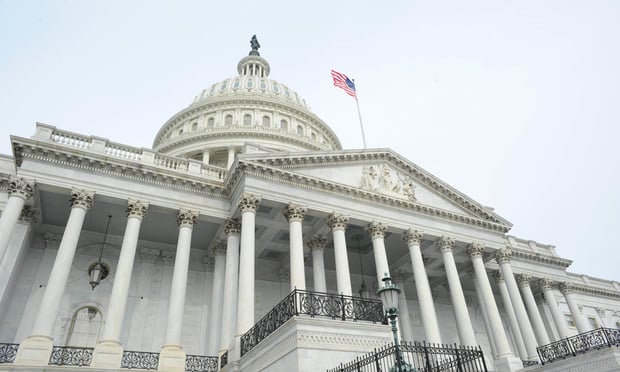ALEXANDRIA, Va. — Credit unions could prepay between $10,000 and 36 basis points of insured shares toward their assessments to pay the costs of the rescue of corporate credit unions under a proposal announced at the May 19 NCUA board meeting.
Under the plan, credit unions wouldn't earn any interest, and the total collected in prepayments would have to be at least $300 million for the program to take effect.
The NCUA has estimated that assessments for natural person credit unions to repay the costs of the corporate credit union rescue will be between 20 and 25 basis points this year.
Recommended For You
The agency said it needs to raise $2.94 billion through assessments in 2011 and 2012, and this would require a combined 38 basis point assessment during those two years.
NCUA Deputy Executive Director Larry Fazio said more than 6,000 credit unions could participate in the program, which will raise funds to help the agency repay the loan from the Treasury Department that established the Temporary Corporate Credit Union Stabilization Fund.
The losses from corporates have caused major financial ramifications for the whole industry and required the NCUA to ask Congress to set up a separate corporate stabilization fund with a loan from the Treasury. Last year, the agency levied a 12.4 basis point assessment.
The comment period for the prepayment proposal runs through late June.
The board also approved a final rule that would prohibit federally insured credit unions that are insolvent, in conservatorship or have ratings of CAMEL 4 and 5 from offering golden parachutes to their executives.
The agency defines golden parachutes as payments that are "contingent on the termination of that person's employment and received when the credit union making the payment is troubled, capitalized or insolvent." All federally insured credit unions would be banned from paying legal or professional expenses incurred in federal or state administrative proceedings that result in a monetary punishment, cease and desist order.
Deferred compensation and retirement benefits would be allowed, and credit unions could still take out liability insurance for executives and volunteers.
Exceptions can be made if a credit union gets permission from its state or federal regulator or it uses a golden parachute to hire new executives to bring it back to sound financial health. And a credit union could offer "reasonable severance payments" if an executive were losing his or her job as a result of an unassisted merger.
The NCUA board also approved a rule that would place additional requirements on advertisements.
The rule requires that the following communications include the official advertising statement stating that deposits are insured by the NCUA: radio and television ads that are longer than 15 seconds and annual reports and other "statements of condition." In print advertisements, the notice of insurance coverage can be no smaller than the smallest font used in the ad.
The board also sent out for comment proposed changes to the Community Development Revolving Loan Fund, including eliminating specific references to minimum and maximum interest rates. The program won't require credit unions to provide matching funds except in special circumstances.
Pamela Williams, a program analyst in the agency's Office of Small Credit Union Initiatives, said the changes would streamline the application process and make the agency's decision-making process more transparent.
The board also approved the final rule that states that through 2012 the NCUSIF provides unlimited insurance on noninterest-bearing transaction accounts, as required by the financial overhaul bill passed last year. These are business accounts that allow for an unlimited number of transfers and withdrawals at any time. NCUA Chief Financial Officer Mary Ann Woodson told the board that there was an increase in CAMEL 4 and 5 credit unions in April and a slight decrease in those rated CAMEL 3.
The NCUSIF's net income through April was $36.4 million and it had a reserve balance of $1.1 billion at the end of April. Its equity ratio was 1.29% at the end of March, as it has been for seven consecutive months.
She said there have been seven credit union failures through April, costing the NCUSIF $34.2 million.
© 2025 ALM Global, LLC, All Rights Reserved. Request academic re-use from www.copyright.com. All other uses, submit a request to [email protected]. For more information visit Asset & Logo Licensing.







